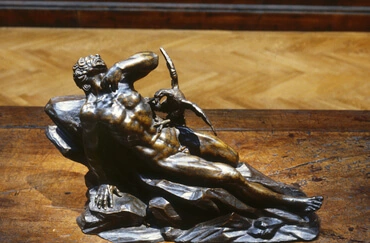Cry

As with most common verbs, the spiritual meaning of “crying” or “crying out” (meaning a shout or wail, not weeping) is highly dependent on context. Who is crying out? To whom? Why? In most cases, though, crying has to do with speaking falsely, and of the emotions arising from the conflict between truth and falsity. When people cry out in distress it is most often an indication that they are being overwhelmed by false ideas. In other cases – especially regarding more joyful cries – it is a celebration of the triumph of truth.
Arcana Coelestia # 1238
1238. As for Eber meaning a nation as well, whose father was thus named Eber, the position is this: Those named so far were nations with whom the Ancient Church existed. All of them were called sons of Shem, Ham, Japheth, or Canaan, because 'Shem, Ham, Japheth, and Canaan' meant differing types of worship in the Church. Noah, Shem, Ham, Japheth, and Canaan never were actual people, but because the Ancient Church in particular was such, and every Church in general is such, that it includes a true internal, a corrupted internal, a true external, and a corrupted external, these names were therefore adopted so that all differences in general could be related to those characters and their sons as to their heads. The nations named here also at first possessed such worship, for which reason they are called the sons of one of Noah's sons, and also such forms of worship themselves are meant by the names of these nations in the Word.
[2] This first Ancient Church meant by Noah and his sons was not confined to a few people but was spread throughout many kingdoms, as is clear from the nations mentioned - throughout Assyria, Mesopotamia, Syria, Ethiopia, Arabia, Libya, Egypt, Philistia up to Tyre and Sidon, and throughout the whole of the land of Canaan, on this side of the Jordan and on the other side. Subsequently however a certain type of external worship started in Syria which spread far and wide from there and through many countries, particularly Canaan. It was a different form of worship from the worship of the Ancient Church. And because something of a Church arose in this way that was separate from the Ancient Church, a new Church so to speak rose up from it which may therefore be called the second Ancient Church. Eber was its first founder, and therefore this Church took its name from Eber. As stated already, everybody at that time was distinguished into separate houses, families, and nations. One nation recognized one father from whom it also took its name, as is clear throughout the Word, the nation which recognized Eber as its father thus being called the Hebrew nation.






